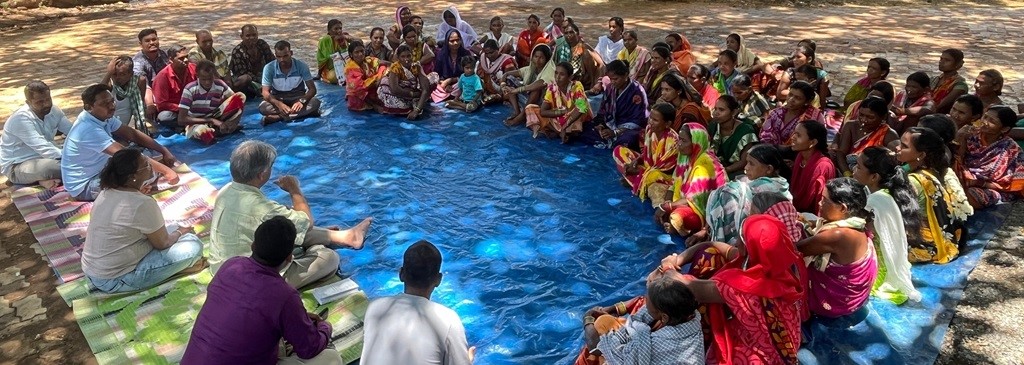

At the core of CYSD’s response to the challenges facing these communities is a focus on advocacy, inclusivity, capacity-building, and strengthening local institutions. Our approach involves mobilizing communities, raising awareness about their rights and entitlements, and simplifying access to these entitlements. To facilitate this, we have developed complementary information platforms to disseminate knowledge widely, streamline demand processing, and ensure the realization of entitlements.
CYSD’s commitment to supporting vulnerable populations extends across all operational areas, including planning, budgeting, programs, and activities. As we work to support vulnerable individuals in tribal and rural Odisha, CYSD draws from best practices both nationally and globally. Additionally, we actively contribute to shaping a collaborative action agenda related to critical areas such as food and nutritional security, health, education, entitlements, and other social protection measures. Our mission is to empower and uplift vulnerable communities, fostering positive change at both local and global levels.
Strategic Interventions
Invigorating Grassroots level Local Governance
To promote inclusive and sustainable development at the grassroots level, the active cooperation, participation, and accountability of all relevant stakeholders are essential. In order to achieve this, CYSD makes comprehensive efforts to enhance multi-level governance by fostering inclusive local planning, nurturing community leaders, building social capital, and engaging in policy advocacy at different governance levels.
In its pursuit of strengthening local governance and localizing the Sustainable Development Goals (SDGs), CYSD has implemented a diverse range of programs with the following objectives: revitalizing local self-governance governance institutions by introducing people-centric planning and prioritization tools; institutionalizing citizen-led monitoring to improve inclusivity in public services; ensuring community rights over food, natural resources, and information; empowering communities to access their entitlements under various flagship schemes and programs; and promoting a gender-sensitive approach to development. These strategies have enabled the organization to cultivate effective, accountable, and transparent institutions at all levels, facilitating responsive, inclusive, participatory, and representative decision-making.
Localizing Global Goals through Local Action
Gram Panchayats (GPs) have a pivotal role to play in creating and implementing local solutions for socio-economic issues. They drive community-based adaptation efforts and establish responsibilities at the grassroots level. By engaging in village development plans and aligning local efforts with state, national, and global goals, GPs help localize the SDGs. CYSD partners with GPs through MOUs to facilitate participatory planning and provide technical support for Gram Panchayat Development Plans (GPDPs), enabling effective SDG localization through planning, execution, and monitoring.
CYSD also conducts entitlement mapping at the household level to assess access to benefits and connect overlooked beneficiaries with their entitlements.
In Odisha, most Panchayats focus on themes like Water Sufficient Villages, Poverty Alleviation, Clean and Green Villages, and Healthy Villages. CYSD supports these goals through technical assistance, monitoring, direct interventions, and collaboration with government departments.
Additionally, CYSD helps establish Natural Resource Management (NRM) structures via MGNREGS planning, creating sustainable assets and promoting environmentally friendly villages. Emphasizing sustainable rural livelihoods, CYSD connects marginalized populations with key government programs. In health, CYSD monitors Village Health and Nutrition Day (VHND) sessions and conducts Urban Health and Nutrition Day (UHND) activities in Bhubaneswar's urban slums, enhancing the accountability and effectiveness of service providers.
Nurturing Community Leaders
Community leadership is vital for harnessing collective energy to drive positive societal change. To empower community leaders in articulating their expectations, initiating collective action, and fostering local cooperation, CYSD conducts a two-week capacity-building program in a phased approach. Through this process, we have successfully trained and mentored hundreds of community leaders who actively engage with their communities, advocate for their concerns in relevant forums, catalyse collective action, and strive to be agents of societal betterment.
Enhancing Last-Mile Reach and Empowering Vulnerable Communities
The government’s saturation policy aligns well with our goal of reaching the last mile, but obstacles often prevent individuals from accessing their entitlements. These challenges include lack of awareness, paperwork issues, and difficulties with digital applications. CYSD, through its network of Community Resource Persons (CRPs) and volunteers, actively supports government efforts to bridge this gap.
To address these challenges, CYSD leverages relevant government programs and initiates collective action on indigenous issues. Key initiatives include analyzing and monitoring MGNREGS and other social security schemes with organized labor groups and PRIs to enhance asset generation and optimize employment access. Additionally, CYSD facilitates access to the Public Distribution System (PDS) and ensures entitlements by institutionalizing a community-owned monitoring system and establishing dialogue between communities and stakeholders.
Ensuring access to the Minimum Support Price (MSP) is also crucial for vulnerable communities. This access helps them secure profitable returns from their agricultural products, reducing the risk of distress sales and exploitation by middlemen. CYSD is dedicated to helping farmers access MSP for products such as millets, NTFPs, and cereals, thereby improving their economic well-being.
Gendered Approach to Development:
A gendered approach to development has been facilitated by a gender cell in CYSD through community monitoring and network action on issues such as domestic violence, gender-based violence, discrimination, and trafficking, all of which affect women's dignity and right to work. This includes capacity building for women PRI representatives on their constitutional rights and development issues. Participation in state-level debates and forums addressing issues like girl child education and infanticide, as well as making programmatic inroads for greater economic participation of women by strengthening existing programs like NRLM and exploring new innovative domains such as women in agriculture, are key strategies in this gender-based approach to development.
The Odisha Budget and Accountability Centre (OBAC), an initiative by CYSD, has been operating for the past decade as a policy and budget research unit in Odisha. OBAC focuses on analysing policies and budgets in social sectors such as public health, education, tribal and caste development, women and child development, water and sanitation, food security, and agriculture. It evaluates major flagship programs from a pro-poor perspective and educates citizens on policies, programs, entitlements, and participation in Panchayat planning.
OBAC actively influences state policymakers through lobbying and advocacy, including legislative and media outreach. In the run-up to the State Budget preparation, OBAC conducts annual macro analysis exercises at the state level to shape the Charter of Demands, which is submitted to the Government of Odisha. After the Odisha State Budget is presented, OBAC organizes panel discussions to examine its implications for the social sector. These discussions focus on two key aspects: evaluating the number of beneficiaries and identifying gaps or deficiencies, particularly within the social sector.
OBAC collaborates with academicians, researchers, and civil society activists through advisory bodies that guide its research activities. The centre has produced numerous research and educational materials to help citizens understand and advocate for their rights. Notable works include gender budgeting analyses and studies on revenue generation from coal and mines, recognized by the W & CD and Finance Departments of Odisha. OBAC's analysis of ICDS in tribal districts and the Tribal Sub Plan budget has highlighted key issues for state policymakers.
To enhance village-level monitoring of development programs, OBAC conducts capacity-building programs for communities and CSOs. Additionally, it promotes budget literacy among youth, researchers, academic institutions, policymakers, and citizens to make the budget-making process more participatory.
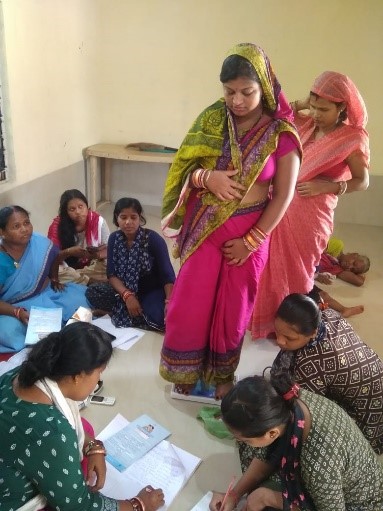
Early marriages and pregnancies are prevalent in CYSD’s operational areas, worsened by the Covid-19 pandemic. Adolescent girls often lack knowledge about menstrual hygiene and sexual health. CYSD’s outreach programs target high-risk groups, including women, adolescent girls, and children in urban slums, raising awareness about health and nutrition during critical stages like adolescence, pregnancy, and early childhood.
CYSD educates male family members on reproductive and sexual health to garner support for women and girls. The organization trains community groups such as Mahila Arogya Samiti, Swasthya Sahayaka Groups, and frontline workers (USHA, AWWs, ANMs) to deliver maternal and child healthcare, nutrition interventions, and mental health support.
To improve access to healthcare, CYSD creates channels for vulnerable populations to receive health advice at home, strengthening community organizations for tailored interventions. In collaboration with the National Skill Development Corporation (NSDC), CYSD trains and certifies women health volunteers, who bridge the gap between the community and healthcare services. This initiative enhances community institutions, ensuring effective healthcare delivery within communities.
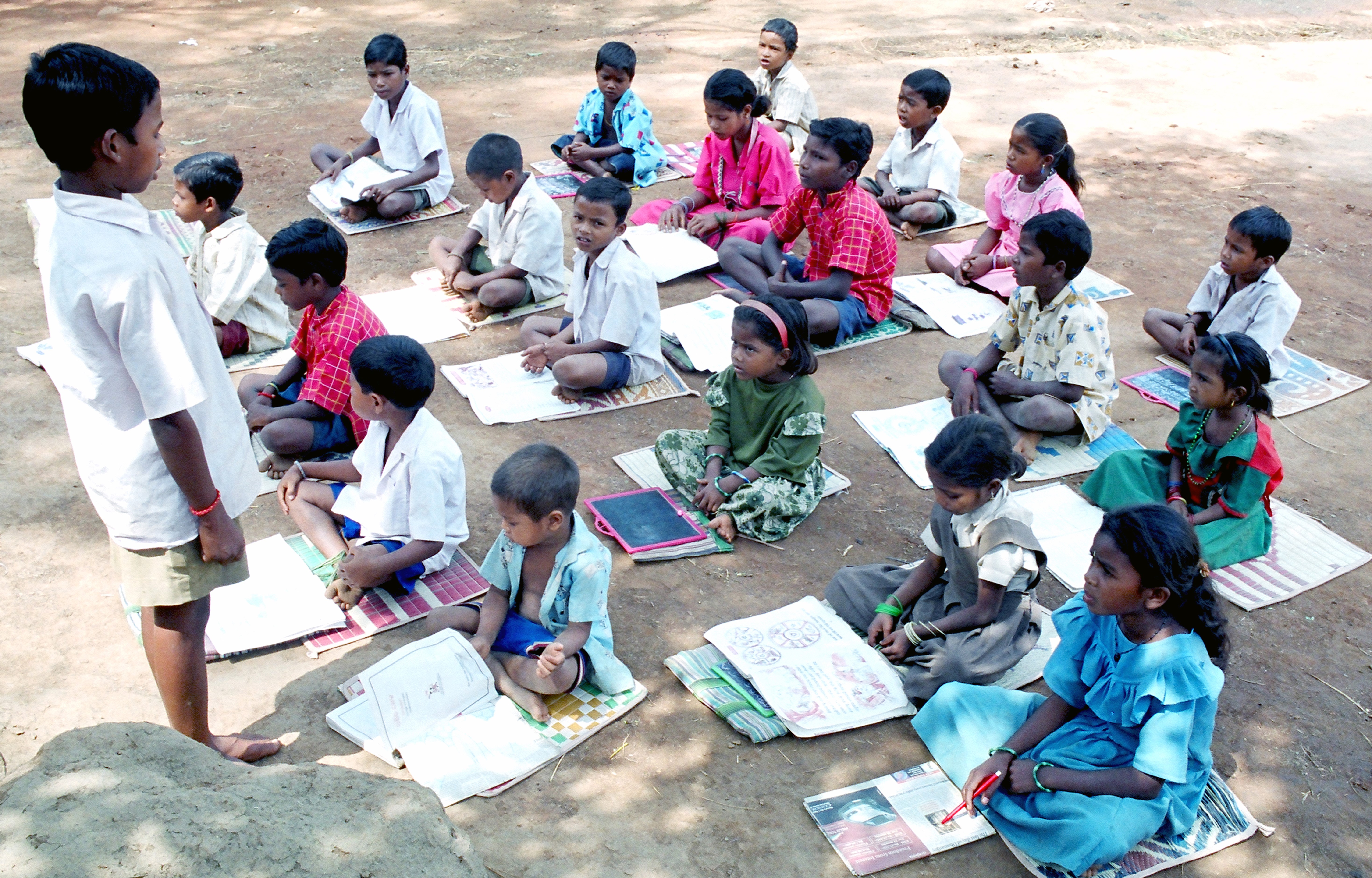
CYSD began its education program in 1988 with the Non-Formal Education (NFE) Program for drop-out children and non-starters under the National Literacy Mission (NLM). Since then, education has been a key focus, aiming to expand and improve outreach, enrolment, retention, and quality education for children, supporting their rights and contributing to Sustainable Development Goals. The strategic interventions aim to supplement mainstream initiatives by facilitating access to education for deprived and marginalized groups and improving education quality, especially in tribal districts.
Key interventions include identifying and mainstreaming out-of-school children, promoting mother-tongue-based multilingual education, developing contextual teaching-learning materials, building capacity for teachers and committees, bridging learning gaps through supplementary education, strengthening grassroots educational governance, facilitating community-led monitoring, creating opportunities for children to nurture their talents, and supporting grievance redressal mechanisms to protect children's rights.
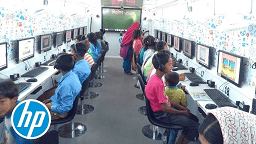
Through a 22 seated computer and IT enabled vehicle powered by green energy and backed by numerous software suites and cloud integration, CYSD offers easy IT & information access to isolated and disadvantaged groups in rural / tribal ...
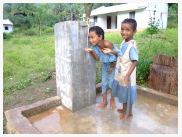
Since 1990, CYSD has got involved with WASH domain starting from low-cost toilet programmes to village cleanliness through work camps and awareness generation campaigns. In subsequent years, the organization has engaged in community awareness t...

CYSD is working towards empowering the community to monitor various government programmes and delivery of basic services through the use of community monitoring tools in order to make the governance system more transparent and accountable...
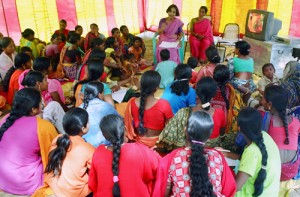
CYSD has taken initiative for improving maternal health status through social determinant approach and consequently promote them towards a better and quality of life. This is being achieved by improving space for the communities’ role in monito...
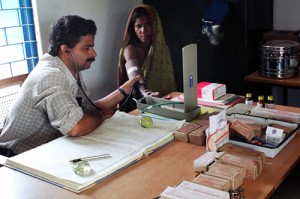
CYSD has been persistent in its effort to address the health needs of Mother and Child in tribal dominated districts like Keonjhar, Mayurbhanj, Phulbani and Sundargarh. Due to the poor accessibility to health facilities, unhygienic health practices a...
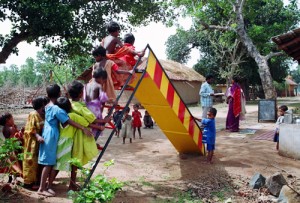
CYSD continuously working on issues related to Child Rights and Protection. In almost two decades of its intervention in collaboration with Plan India CYSD has been persistent in building internal and external “Child Safe” environme...
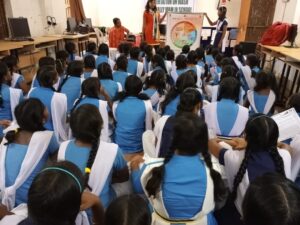
The journey of the organisation in implementing Education programme started in 1988 with Non Formal Education (NFE) Programme for the drop-out children and the non-starters un National Literacy Mission (NLM). Since then Education has been the f...